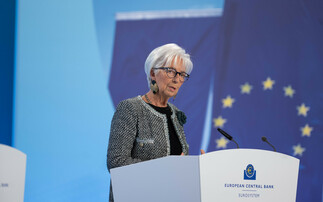Fund managers anticipate the Volkswagen emissions scandal will have immediate implications for the global auto sector, but many are uncertain on the longer-term impact and are maintaining current positions.
It was revealed last week the German car manufacturer had manipulated diesel emissions tests in the US and Europe, prompting its share price to collapse by 34% since scandal first emerged, to its current value of €107.
VW's CEO Martin Winterkorn announced his resignation amid the unfolding scandal, and is now under investigation by the German prosecutors. Meanwhile, the company set aside €6.5bn in legal provisions, a figure considered inadequate by many sector experts.
Mark Holman, CEO of TwentyFour Asset Management, compared the scandal to the BP oil spill disaster in the US, which cost the oil giant $18bn in damages, saying the provision VW has set aside is "nowhere near enough".
"The newsflow has only just begun and there is a lot more to follow on this story," he said.
"There are likely to be law suits, criminal actions, board level firings, rating agency downgrades, stock price revisions, maybe even selling restrictions on the company, brand damage, increased financing costs, and removal from SRI indices."

Death to diesel
Schroders' head of UK and European equities Rory Bateman described the scandal as "the death knell of diesel in the US", and expects both the US and Europe to begin moving to alternative powertrain technologies.
"Sadly, legal issues are not new to the auto industry and [they] cast a long shadow over share price performance," he said. "Whether we look at Toyota or Porsche, underperformance tends to persist for years not days, partly because legal issues take years, not days, to resolve."
Three factors causing a storm for European equities
Kevin Lilley, a European equities manager at Old Mutual Global Investors, also expects the scandal to affect the wider automotive industry, but believes the impact will be short-lived. He continues to hold 2.8% in Renault in the top ten holdings of his £80m European Equity (ex-UK) fund.
He said: "Auto sector valuations are looking attractive, particularly as the recent Frankfurt auto show calmed fears on this year's outlook.
"The Volkswagen scandal, however, is a real shocker and will dent confidence in the sector in the short term. This will not stop customers buying cars however, with VW's deserved likely loss of market share being to the benefit of other sector players."
Too soon to judge
Hermes' credit co-head Fraser Lundie is also retaining his position in VW's short-end senior debt in his Multi-Strategy Credit and Absolute Return Credit funds.
He said: "Maintaining a strong investment-grade rating is important for the financing arm of the business. We would expect rating agencies to wait until more details on the size of fines are confirmed, the timing of the fines, and industry data about potential market share losses before acting. Our base case is a one-notch downgrade with a lower chance of two notches.
"Additional levers that VW can pull to support its liquidity position and credit rating include cutting dividends, selling assets and reducing capital expenditure."
Eye of the storm
Dino Fuschillo, manager of the Sanlam FOUR Active European ex UK Equity fund, which has 2% in Volkswagen, also thinks it is too early to judge the wider impact of the scandal.
"We had 2% in Volkswagen and we are still holding this. We are still in the eye of the storm and it would be rash to make quick decisions," he said.
"The shares have discounted a lot, and I cannot say with confidence there is not more to come which would cause volatility; we could yet see swings of 10% either way."
However, he is not convinced the issue will dramatically affect the wider automotive industry outside of short-term share price volatility, saying: "We will have to see whether it is a commonplace issue in the industry. There will be fines, but they will not be so severe that it results in the demise of any one company."














